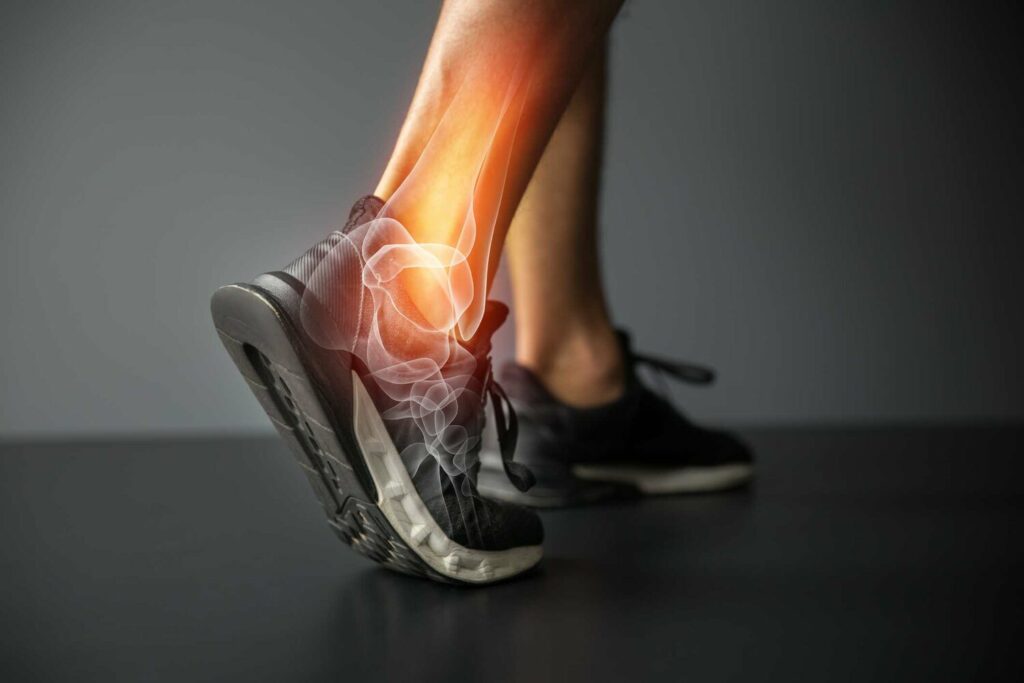Prevalence Is Rising
In the UK, the prevalence of type 2 diabetes continues to rise. There are now more than 4.9 million people living with the condition in the UK. Approximately 13,6 million people are also at greater risk of developing type 2 diabetes. Approximately 850,000 people with type 2 diabetes remain undiagnosed.

But You’re A Physiotherapist, Why Do You Care?
It’s a valid point to be fair. Diabetes is known to affect practically all organs and systems in the human body. Uncontrolled diabetes is associated with long term dysfunction of the heart, blood vessels, eyes, kidneys, the nervous system and muscle and joint disorders. Although muscle and joint disorders are not considered the most common complications of diabetes. Recent research and anecdotal evidence from within the clinic are starting to demonstrate otherwise, with diabetes playing a significant role in several muscle, tendon and joint conditions.

Diabetes – The Predisposing Factor
Various skeletal and muscular system conditions arise in diabetes. However, it is not the disease itself that causes such conditions, but it is a predisposing factor, and it also affects the severity, natural history, and response to treatment of the condition, with diabetic patients experiencing more severe symptoms than their non-diabetic counterparts.
Patients with these conditions experience pain and loss of function in the affected area, which may result in limitations to their exercise programs, which are recommended as a way to maintain and reduce their weight.
Here is a list of conditions that are more prevalent or are affected by unstable blood sugar levels in people living with diabetes.
It is not within the scope of this blog to discuss the exact physiological processes that increase the prevalence. When living with type 2 diabetes, the most important thing you can take away from this blog is to control your blood sugars effectively, which we will discuss further below.

Returning To Your Previous Question…
But you’re a Physiotherapist, why do you care?
In our clinic, we see a number of patients with these muscular and skeletal conditions, both with and without type 2 diabetes. Part of our role is to understand why these conditions occur. We may refer you to your GP as part of our investigation, especially if we think that blood sugar levels are involved. We then focus on the rehab of the condition to help improve the current symptoms, as well as provide ongoing treatment for prevention and long-term management.
In addition to this, physiotherapy has other roles to play. We are well-suited to provide support to people living with diabetes. Among our specialties are exercise, lifestyle management, and goal setting, which is a critical component of type 2 diabetes treatment.
The effect of diet and exercise on the prevention and treatments of type 2 diabetes has been found to have substantial benefits including:
-
Weight loss which can lead to remission of type 2 diabetes
-
Carbohydrate restriction helping maintain weight loss
-
Combining physical activity and fitness with calorie restriction and weight loss help further contribute to the remission of type 2 diabetes.
This is why we Physiotherapists are making type 2 diabetes our business. Our priority is to help our clients tackle their conditions head-on, and type 2 diabetes is no different. With the right support and guidance, you can manage your diabetes well and not let it hold you back from living an active life.
If you would like to know more, there are many books now available on the topic, as well as informative online articles such as the one published recently by The Guardian newspaper.
Please contact us if you would like to discuss any of the above or would like to know how physiotherapy can help you with managing your type 2 diabetes.
Appointments remain limited and we are experiencing an exceptionally high demand for our physio services since UK restrictions were lifted, so please contact us immediately to avoid a long wait.
If you would like to get one of our limited slots, please click HERE to email or CALL us on 07900603617.
References:
Magkos, F., Hjorth, M.F. and Astrup, A., 2020. Diet and exercise in the prevention and treatment of type 2 diabetes mellitus. Nature Reviews Endocrinology, 16(10), pp.545-555.
Dimitri-Pinheiro, S., Pimenta, M., Cardoso-Marinho, B., Torrão, H., Soares, R. and Karantanas, A., 2021. Diabetes: a silent player in musculoskeletal interventional radiology response. Porto Biomedical Journal, 6(1).
Sözen, T., Başaran, N.Ç., Tınazlı, M. and Özışık, L., 2018. Musculoskeletal problems in diabetes mellitus. European journal of rheumatology, 5(4), p.258.





